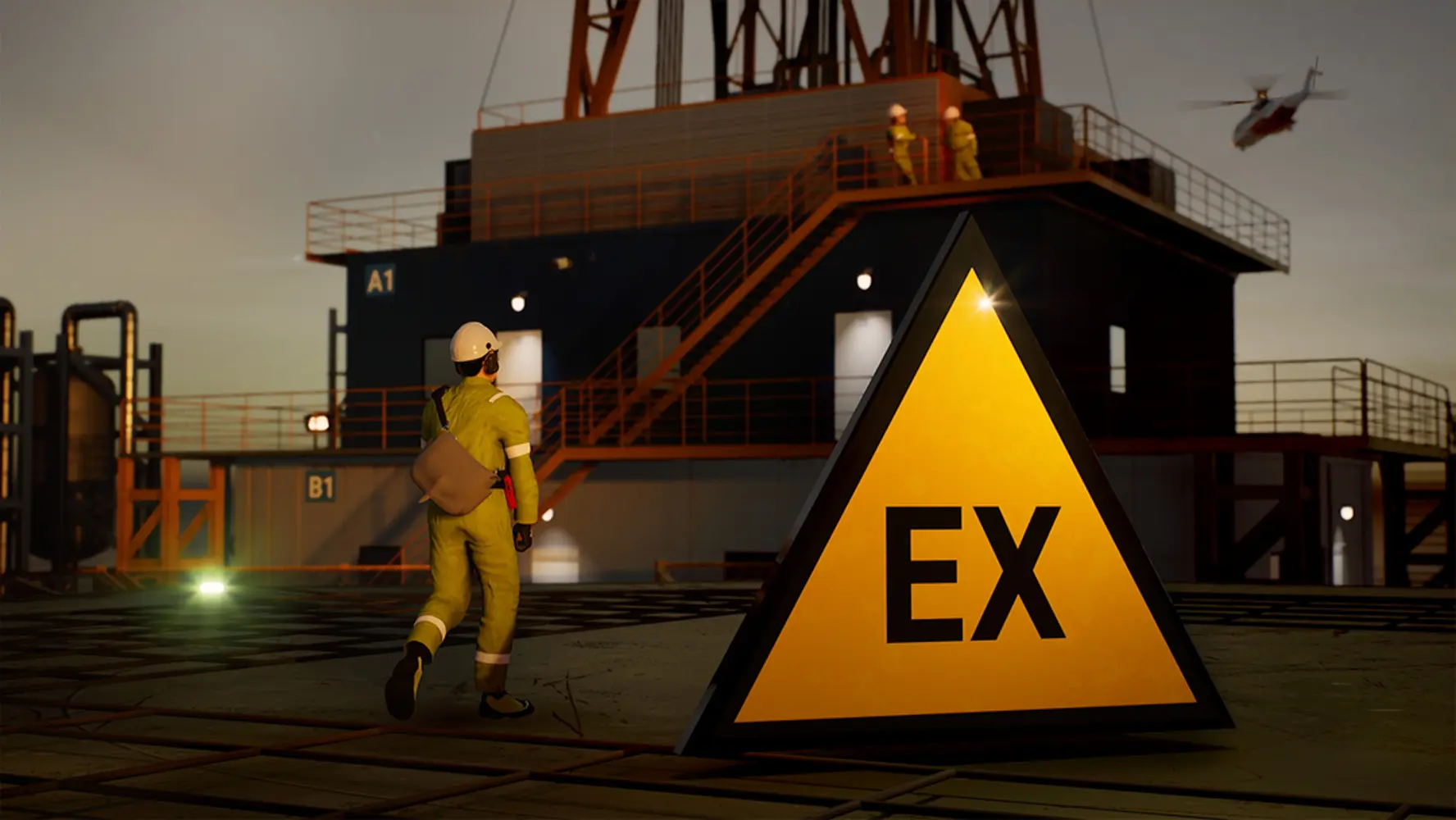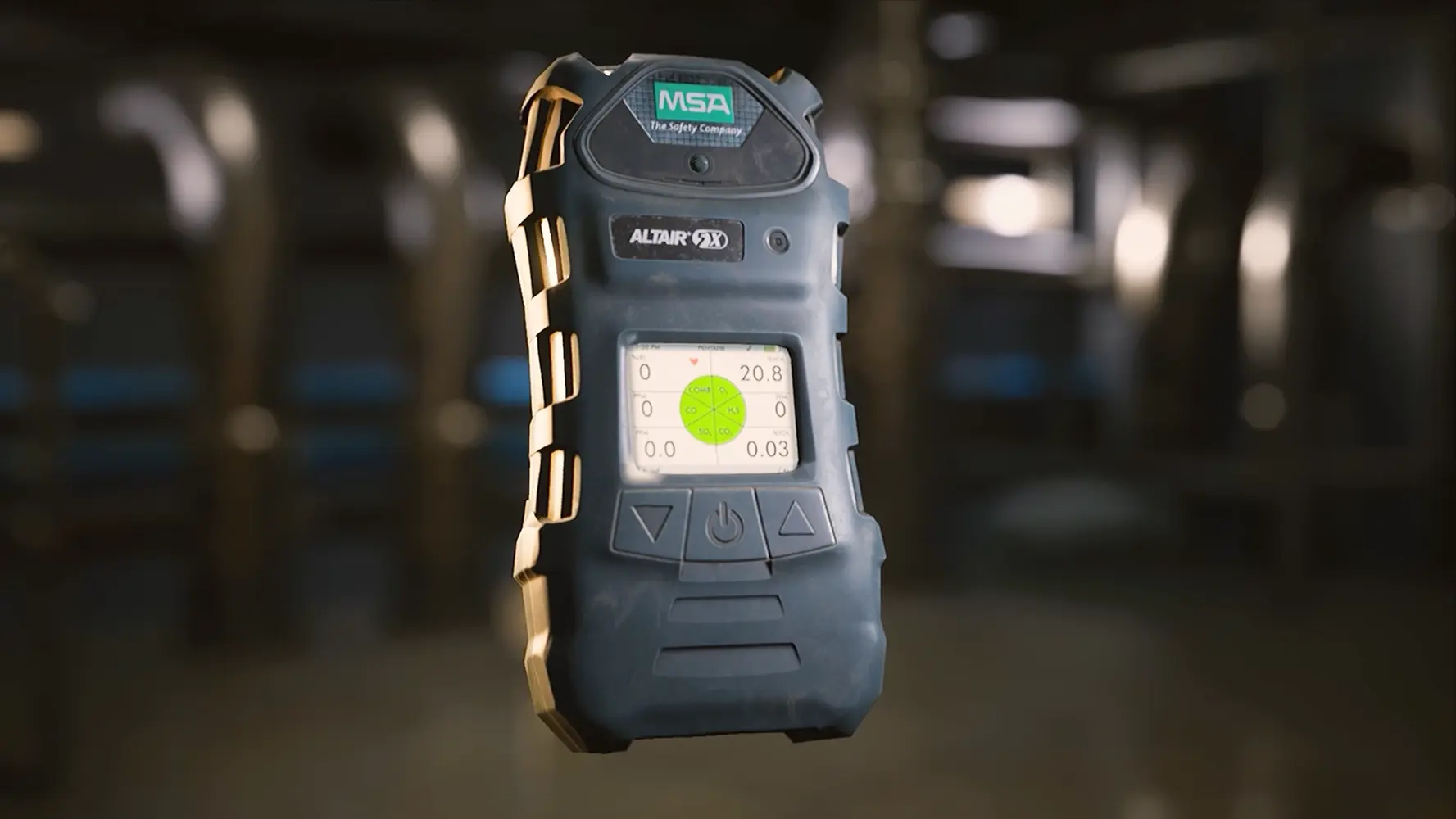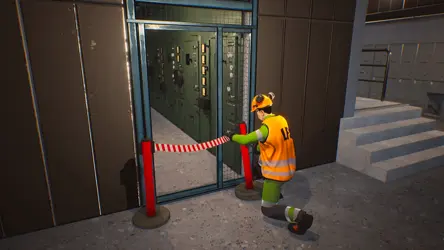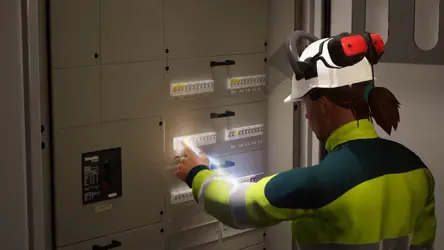Ex-sikkerhet og bevisstgjøring – petroleumsindustrien
Bli bevisst på faremomentene i eksplosjonsfarlige områder, slik at du som leder ikke iverksetter tiltak som kan påvirke sikkerheten og at du som utførende gjør arbeidet i eksplosjonsfarlige områder på en sikker måte.




Mål
Etter gjennomført kurs skal deltakerne ha kunnskap om grunnleggende brann- og eksplosjonsteori, potensielle tennkilder, hvilke regelverk som gjelder og hvordan en skal forstå merkeskilt på utstyr.
Målgruppe
Utførende personell (ikke-elektrofag) og administrativt personell (ikke utførende).
Personell innen mekaniske fag, prosessoperatør, annet driftspersonell og annet personell som har arbeid som kan påvirke sikkerheten for elektriske anlegg. Kurset er også for personell som arbeider med ikke-elektrisk utstyr, men som inneholder mulige tennkilder.
Ledere i petroleumsindustrien, vedlikeholdsledere og andre som kan sette i verk tiltak som kan påvirke sikkerheten i Ex-anlegg. Kurset er også for innkjøpere og selgere.
Kurset inneholder disse emnene
- Eksplosjonsteori og tennkilder
- Sikkert opphold og adferd i Ex-områder
- Regelverk
- Risikovurdering og områdeklassifisering
- Valg av utstyr
- Flyttbart elektrisk utstyr (håndholdt, bærbart og transportabelt)
- Sluttest
Kurset er basert på ATEX-direktiv, Petroleumsloven, NEK 420, EN IEC 60079-14.
Regelverk
I EU-direktiv 1992/99/EC (HMS i Ex-områder) er det satt krav til at arbeidsgiver skal utarbeide og holde vedlike et eksplosjonsverndokument. Dette dokumentet skal inneholde blant annet risikovurdering, sonekart og dokumentasjon på at alle arbeidstakere som skal inn i Ex-områder har fått tilstrekkelig og egnet opplæring i eksplosjonsvern. I alle EU og EØS land skal dette være implementert i det nasjonale lovverket.
I Norge er dette innført som et forskriftskrav i: «Forskrift om helse og sikkerhet i eksplosjonsfarlige atmosfærer» ofte kalt «FHOSEX».
I Petroleumsloven stilles det også krav til å man har kompetanse: § 9-7. Kvalifikasjoner
Rettighetshaver og andre som deltar i petroleumsvirksomhet skal ha de nødvendige kvalifikasjoner til å utføre arbeidet på en forsvarlig måte. Opplæring skal finne sted i nødvendig utstrekning.
Kompetanse
Krav til forkunnskaper: Ingen.
Før du kommer på kurs
Sluttest - Kurset avsluttes med en sluttest som må beståes for å få godkjent kurs og kursbevis. Vi anbefaler å gjøre notater underveis i kurset.
Teknisk informasjon
Systemkrav
Dette kurset kan gjennomføres på datamaskin, nettbrett og smarttelefon - når og hvor det passer deg. For å sikre en best mulig opplevelse anbefaler vi å benytte oppdatert nettleser (som for eksempel Google Chrome, Microsoft Edge, Safari eller Firefox) og har en stabil internettforbindelse på minst 5Mbps hastighet. Dersom du bruker mobilnett, anbefales minst 4G-tilkobling.
Kursmanual
Ja, det følger med kursmanual til dette kurset.
Har du spørsmål?
Vi forstår hvor viktig riktig opplæring er for å sikre et trygt arbeidsmiljø, og vi er dedikert til å levere den mest effektive opplæringen innen elsikkerhet.
Hvis du har spørsmål om dette produktet eller ønsker mer informasjon om vårt tilbud, er våre eksperter her for å hjelpe deg med å finne det rette kurset for deg eller teamet ditt.
Ta kontakt med oss
Relaterte kurs
Hos Trainor lager vi spesialdesignede, animerte filmer for å skape engasjerende innhold som gir deg enestående læringsopplevelser. I en verden som stiller stadig strengere krav til kompetanse, effektivitet og bærekraft, tilbyr vi digital opplæring av høyeste kvalitet som møter bransjens behov og forventninger og engasjerer fagfolk verden over.
Hvis du har spørsmål om dette produktet eller ønsker mer informasjon om vårt tilbud, er våre eksperter her for å hjelpe deg med å finne det rette kurset for deg eller teamet ditt.
Les merMed Trainor-appen kan du ta eLæringskurs direkte fra mobilen eller nettbrettet, selv om du ikke har dekning. Appen er gratis og du logger deg på med samme brukernavn og passord som du vanligvis bruker på trainor.no.



